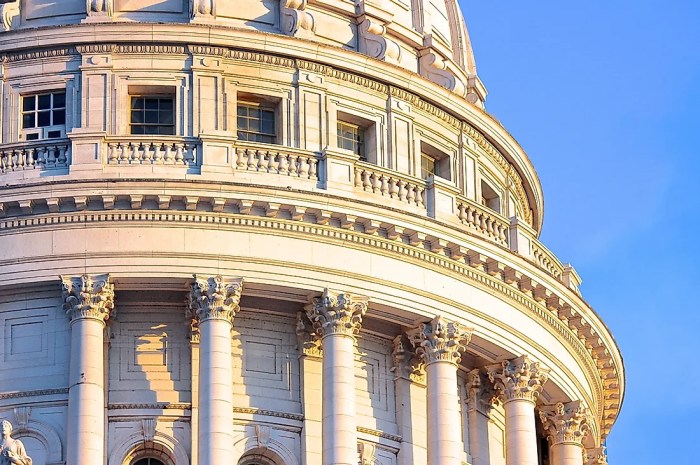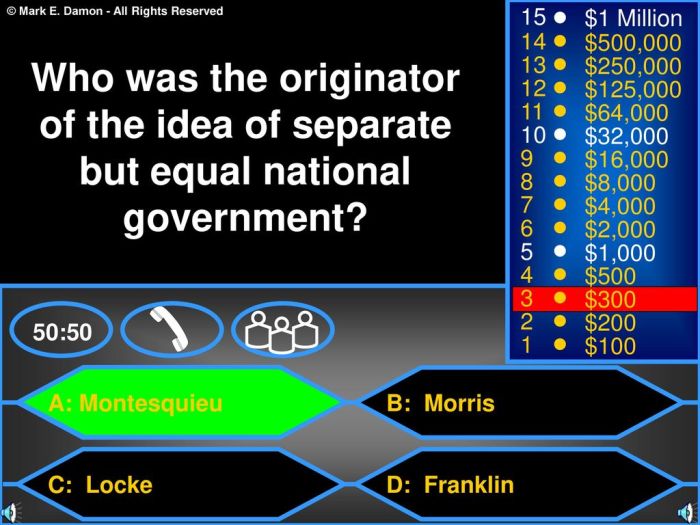The originator of the wisconsin idea of efficient government was – The Wisconsin Idea, a groundbreaking concept that transformed governance, was born in the late 19th century. Its primary architect, Robert M. La Follette, envisioned a government responsive to the people, guided by expert knowledge, and dedicated to accessible education for all.
This ideology, rooted in the progressive era, challenged traditional political norms and laid the foundation for a more democratic and efficient government.
Historical Context: The Originator Of The Wisconsin Idea Of Efficient Government Was

The late 19th and early 20th centuries in Wisconsin were marked by rapid industrialization, urbanization, and social change. These transformations led to widespread dissatisfaction with the existing political system, which was perceived as corrupt and unresponsive to the needs of ordinary citizens.
Key Figures, The originator of the wisconsin idea of efficient government was
Robert M. La Follette, a charismatic and progressive Republican governor, emerged as the primary originator of the Wisconsin Idea. La Follette’s background as a lawyer and journalist gave him a deep understanding of the problems facing Wisconsin and a commitment to finding solutions.
Other key figures who contributed to the development of the Wisconsin Idea include: Charles McCarthy, a political scientist who advocated for the use of expert knowledge in policymaking; John R. Commons, an economist who emphasized the importance of labor unions; and Florence Kelley, a social reformer who fought for child labor laws.
Principles of the Wisconsin Idea
The Wisconsin Idea is based on several core principles:
- Expert knowledge should inform policymaking.
- Government should be responsive to the needs of the people.
- Education should be accessible to all citizens.
These principles were applied in practice through a variety of initiatives, such as the creation of the University of Wisconsin Extension, which provided educational programs to rural communities, and the establishment of the Wisconsin Legislative Reference Bureau, which provided research and analysis to state legislators.
Impact and Legacy
The Wisconsin Idea has had a profound impact on the state of Wisconsin and beyond. It has helped to create a culture of civic engagement and public service, and it has served as a model for other states and governments.
Examples of the Wisconsin Idea in action today include: the University of Wisconsin-Madison’s Cooperative Extension, which provides educational programs to communities throughout the state; the Wisconsin Budget Project, a nonpartisan research organization that analyzes state fiscal policies; and the Wisconsin Center for Investigative Journalism, which produces in-depth investigative reporting on issues of public importance.
Controversies and Criticisms
The Wisconsin Idea has not been without its critics. Some have argued that it is too idealistic and impractical, while others have accused it of being a form of elitism.
Despite these criticisms, the Wisconsin Idea has remained a powerful force for good in Wisconsin and beyond. It has helped to create a more informed and engaged citizenry, and it has played a vital role in improving the lives of all Wisconsinites.
FAQ Summary
Who was Robert M. La Follette?
Robert M. La Follette was a prominent American politician and reformer who served as Governor of Wisconsin from 1901 to 1906 and as a U.S. Senator from 1906 to 1925. He was a leading advocate of the Wisconsin Idea and played a pivotal role in its implementation.
What are the key principles of the Wisconsin Idea?
The Wisconsin Idea is based on the principles that expert knowledge should inform policymaking, government should be responsive to the needs of the people, and education should be accessible to all citizens.
How has the Wisconsin Idea influenced other states and governments?
The Wisconsin Idea has influenced governments worldwide, inspiring reforms in areas such as public health, education, and labor relations. It has also served as a model for progressive movements and has been cited as a source of inspiration for the New Deal and the Great Society programs in the United States.

